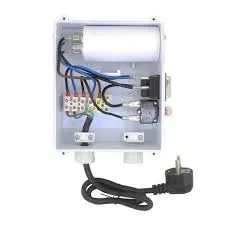The Importance of Electrical Insulation Tapes in Modern Electronics
In today’s fast-paced and technology-driven world, electrical insulation plays a crucial role in ensuring the safety, efficiency, and longevity of electronic devices and systems. Among the various types of electrical insulation materials, electrical insulation tape stands out as a versatile and essential component in both industrial applications and everyday technological devices. This article explores the significance of electrical insulation tape, its types, and its applications in modern electronics.
Understanding Electrical Insulation Tape
Electrical insulation tape is a type of pressure-sensitive tape that is designed to insulate electrical wires and other materials that conduct electricity. Made from various materials such as vinyl, rubber, and cloth, these tapes are engineered to provide excellent dielectric strength, which is critical for preventing electrical leakage and reducing the risk of short circuits. The primary purpose of electrical insulation tape is to safeguard users and devices from electric shocks and malfunctions.
Types of Electrical Insulation Tapes
1. Vinyl Electrical Tape This is one of the most common types of insulation tape and is widely used due to its flexibility, durability, and resistance to moisture, chemicals, and UV light. Vinyl electrical tape is ideal for both indoor and outdoor applications and is available in a variety of colors for coding and identification.
2. Rubber Insulation Tape Made from a rubber base, this tape offers excellent adhesion and conformability, making it suitable for wrapping irregularly shaped wires and cables. It provides strong insulation properties and is often used in high-voltage applications.
3. Cloth Electrical Tape This type of tape, often referred to as friction tape, is made from woven cloth and is characterized by its high tensile strength. It is commonly used in automotive and aerospace applications due to its ability to resist high temperatures and its compliance with various industry standards.
4. Kapton Tape Known for its exceptional heat resistance, Kapton tape is made from polyimide film and is often employed in high-temperature applications, such as in electronic manufacturing and circuit board insulation.
Applications of Electrical Insulation Tape
tape electrical insulation

Electrical insulation tape is utilized in a wide range of applications across different industries
. Some of the most notable uses include- Electrical Wiring Insulation tape is commonly used to wrap and protect electrical wiring, ensuring that live wires do not come into contact with each other or with conductive surfaces. This prevents short circuits and potential hazards.
- Automotive Industry In vehicles, insulation tape is used to bundle wires and cables, protecting them from abrasion and environmental factors. This is crucial for keeping the automotive electrical systems functional and safe.
- Home Appliances Many household devices employ electrical insulation tape to enhance safety by preventing electrical currents from escaping and causing potential hazards, making it integral in the design of secure electrical appliances.
- Electronics Manufacturing In the production of circuit boards and electronic components, insulation tape helps in securing and insulating various parts, thereby ensuring that devices operate effectively without electrical interference.
Safety and Compliance
The use of electrical insulation tape is not merely a matter of convenience; it is essential for compliance with safety regulations. Many industries are governed by strict standards to ensure that all electrical components are insulated properly to prevent accidents. Inadequate insulation can lead to severe consequences, including fires, equipment damage, and electrical shocks.
Conclusion
In conclusion, electrical insulation tape is a fundamental component that plays a vital role in ensuring the safety and reliability of electronic devices and systems. With various types tailored for different applications, insulation tape helps to safeguard users against electrical hazards and enhances the performance of countless devices. As technology continues to evolve, the importance of high-quality electrical insulation becomes increasingly critical, reinforcing the need for robust insulation solutions in our interconnected world. Whether in industrial settings or our everyday lives, electrical insulation tape remains an indispensable tool in the realm of electronics.
-
XIANGFAN Rubber Tape-Ultimate Solutions for All Your Insulation NeedsNewsJun.24,2025
-
XIANGFAN Rubber Tape-Protection for Industrial and Residential ApplicationsNewsJun.24,2025
-
XIANGFAN Rubber Tape: Superior Safety and Sealing for Demanding EnvironmentsNewsJun.24,2025
-
XIANGFAN Rubber Tape: Reliable Solutions for Every Electrical ChallengeNewsJun.24,2025
-
XIANGFAN Electrical & Industrial Tape: Powering Reliability Across IndustriesNewsJun.24,2025
-
XIANGFAN Electrical & Industrial Tape: Excellence in Every ApplicationNewsJun.24,2025
